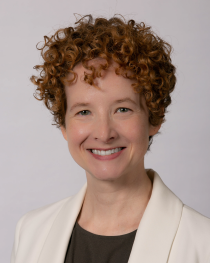As states administer opioid settlement funds, they are seeking ways to engage people who have been affected by the opioid epidemic in decision-making, policy development, and program implementation. In many states, legislation or memoranda of agreement creating administrative structures for distributing settlement funds require representation of people with lived experience* on advisory boards and other decision-making bodies.
As of June 2023, 17 states require representation of people with lived experience in their opioid settlement decision-making and/or advisory groups. According to analysis by the Kaiser Family Foundation, Shatterproof, and Johns Hopkins University, approximately 7 percent of state advisory council membership for opioid settlements is currently filled by people citing their lived experience.
Effective collaboration with people with lived experience, particularly from racial and ethnic groups that have borne disproportionate harms from the opioid epidemic, can lead to the development of services that more closely meet the needs of those impacted. State officials working in behavioral health have a long history of engaging people with lived experience — particularly groups that have experienced stigma in prior interactions with policymakers or the health care system — and lessons can be taken from those experiences.
Despite examples of successful approaches to engaging people with lived experience, stigma and other systemic barriers can often complicate efforts to engage these individuals in the policy process. Based on interviews with experts and state officials, this resource summarizes strategies that states have adopted for engaging with people with lived experience in opioid settlement decision-making, as well as some lessons learned and pitfalls to avoid.
Empower Leaders with Lived Experience
Establishing state requirements to ensure people with lived experience are included in decision-making bodies or appointing people with lived experience into leadership positions can effectively elevate the voices of people with lived experience.
Through its Governor’s Overdose Prevention and Intervention Task Force, Rhode Island ensures that people affected by the task force’s work have an active voice in decision-making. In November 2022, Governor Dan McKee signed an Executive Order, “Expansion of the Governor’s Overdose Task Force,” adding a community co-chair to join the state agency leadership team and hiring a task force director, who is a person with lived experience. The co-chairs and director are responsible for ensuring strategic alignment, community engagement, and providing recommendations to the Opioid Settlement Advisory Committee through community engagement by including people with lived experience in overdose prevention and intervention decision-making.
The task force and community members have developed a community engagement process that provides recommendations to the Opioid Settlement Advisory Committee. Moreover, state leadership remains committed to including the expertise of people with lived experience by uplifting community voices in its decision-making processes, particularly by employing and appointing people with lived experience in its overdose prevention work.
In North Dakota, First Lady Kathryn Burgum is a powerful advocate for recovery, often taking opportunities to weave narratives of her long-term recovery into press conferences and larger conversations with the public. By candidly speaking about her experience, and offering others the space to do the same, she uses her platform to help confront stigma and normalize conversations around addiction. Through her role as Advisory Council chair, Bergum helps to elevate the work of the state’s Office of Recovery Reinvented, which aims to end the shame and stigma surrounding the disease of addiction in North Dakota.
Engage People with Lived Experience at All Levels of the Process
A key strategy emphasized by state leaders is the need to engage individuals at every point in the policy process, from ideation to implementation and evaluation. Input and engagement processes perceived as a one-time endeavor without further feedback or policy action can result in degradation of trust.
To help foster ongoing dialogue, officials can institute processes for bi-directional feedback and transparency throughout the policy process, including evaluation of outcomes. Continuing to invest and build long-term relationships with organizations that represent or serve people with lived experience can also help shape and refine approaches that better meet the unique needs of communities. For example, in establishing Maryland’s Center for Harm Reduction Services, Maryland took a “bottom up” approach, first engaging the perspectives of local health departments delivering harm-reducing services and allowing local communities to apply for syringe service programs based on identified community needs.
Twenty-two syringe exchange programs funded across the state provide a foundation for ongoing communication, with grant funding processes and a quarterly advisory meeting providing an ongoing opportunity to hear about emerging challenges and to gather feedback on program implementation and challenges. Responsiveness to community concerns creates a “virtuous cycle,” whereby people affected by policy decisions are more likely to see engagement as genuine and to participate in the process.
Address Barriers to Participation by Paying Participants for Their Time and Efforts
Many advisory committees currently rely on volunteers, which can pose barriers to participation from many people with lived experience. Time away from jobs or family care, for example, is not financially feasible for many. Paying individuals for their time, travel, and work allows for engagement with a broader segment of the population. States have pursued several different funding strategies for providing compensation for participation in policy-making bodies. For example, in 2022 the Washington Legislature passed legislation allowing for compensation to be paid to individuals with lived experience, which includes stipends, child and adult care reimbursement, and lodging and travel expenses. In Rhode Island, members of the community who sit on the Governor’s Overdose Prevention and Intervention Task Force receive stipends of $4,090 annually, administered through the organizations who they represent.
Listen First
Cultural humility is a key element in successful engagement with people with lived experience. In North Dakota, officials prioritize listening to people with lived experience before embarking on decision-making processes, and the state cannot make allocation decisions prior to listening sessions. These listening sessions have been targeted, focusing on mothers who have lost children and other specific populations, such as people who are currently incarcerated or in treatment centers.
Washington’s state officials are also thoughtful in how they engage people with lived experience, acknowledging that government has a history of engaging individuals with lived experience, particularly in historically marginalized communities. They note that avoiding perceptions of tokenism — the practice of making only a perfunctory or symbolic effort to be inclusive to members of minority groups — has been a historical challenge they are actively working to address. They are doing so by prioritizing meaningful engagement with community-based organizations and incorporating input into recommendations and policies.
Pitfalls to Avoid
State officials and people with lived experience both expressed a desire to avoid “checking the box” when including those who have been affected by the opioid epidemic in decision-making. State officials with experience in engaging people with lived experience in policymaking, or who have lived experience themselves, share their insights on common pitfalls and challenges:
- “Lived experience” is not monolith, so input from people with lived experience may be rejected because they present issues that officials previously deemed out of scope or because they lack professional certifications. Consider that people’s encounters with services and issues, level of professional experience, and perspectives may differ from state officials’ expectations and consider strategies for training internal staff on principals and strategies for culturally informed engagement.
- Consider if your organization is ready to have people with lived experience in decision-making positions. This readiness requires intentional planning, and if organizational culture is not ready to act on input from people with lived experience, conflicts and further deterioration of relationships may occur.
- Superficial engagement, such as “including youth in youth decision-making” by inviting an adolescent to meetings but not soliciting their input, can be viewed as tokenizing. To mitigate situations like this, require the inclusion of people with lived experience in legislation or consider other options to promote sustainability of engagement efforts. Be conscious to include people with “living” experience and the voices of anyone who has been touched by addiction.
- Pay attention to power dynamics and framing. Government entities inherently have more power than individual citizens, so consider procedures, meeting formats, and other methods to foster inclusivity and an environment where participants both feel comfortable providing input and that their input will have an effect on the outcomes. Engaging people in their own communities, rather than expecting them to come to you, can be an important gesture that mitigates some of these power dynamics.
Resources for Working with People with Lived Experience
Several organizations have in-depth resources and frameworks for working with people with lived experience. In general, these resources offer pathways to better adapt internal processes, communication practices, and meeting facilitation strategies to meet the needs of all participants.
The Office of the Assistant Secretary for Planning and Evaluation’s (ASPE) Engaging People with Lived Experience to Improve Federal Research, Policy, and PracticeThis resource includes materials ASPE has prepared as it leads work on how federal agencies and programs can meaningfully and effectively engage people with lived experience, which can offer state officials guidelines for tailoring their own efforts.
SAMHSA provides these guidelines to encourage organizations to involve individuals with lived experience of mental and/or substance use disorders and families in grant proposal development, implementation, and review, which offers a framework for state officials to build into their own processes, from mission to evaluation.
This resource offers an array of considerations for including people with lived experience, such as financing strategies, power dynamics, eliminating stigma, and capacity-building.
* The term “people with lived experience” is a broad term used to refer to people who are directly affected by the opioid crisis or strategies that aim to address it and may encompass a broad range of life paths or views. People with lived experience may include individuals who use opioids or other drugs, those who are receiving services for opioid use disorder, those who are in recovery from opioid use disorder, or others directly impacted by opioid or drug use.
Acknowledgements
The National Academy for State Health Policy provides this information with the ongoing support of the Foundation for Opioid Response Efforts (FORE) and thanks FORE Project Officer Ken Shatzkes and FORE President Karen Scott for their continued guidance and direction. The author would also like to thank Malik Burnet, Amanda Latimore, Noah Abdenour, Paolo Del Vecchio, Jonathan Holt, Felicia Mason-Edwards, Philip Rutherford, Cathy Schultz, and Kris Shera for their contributions.


